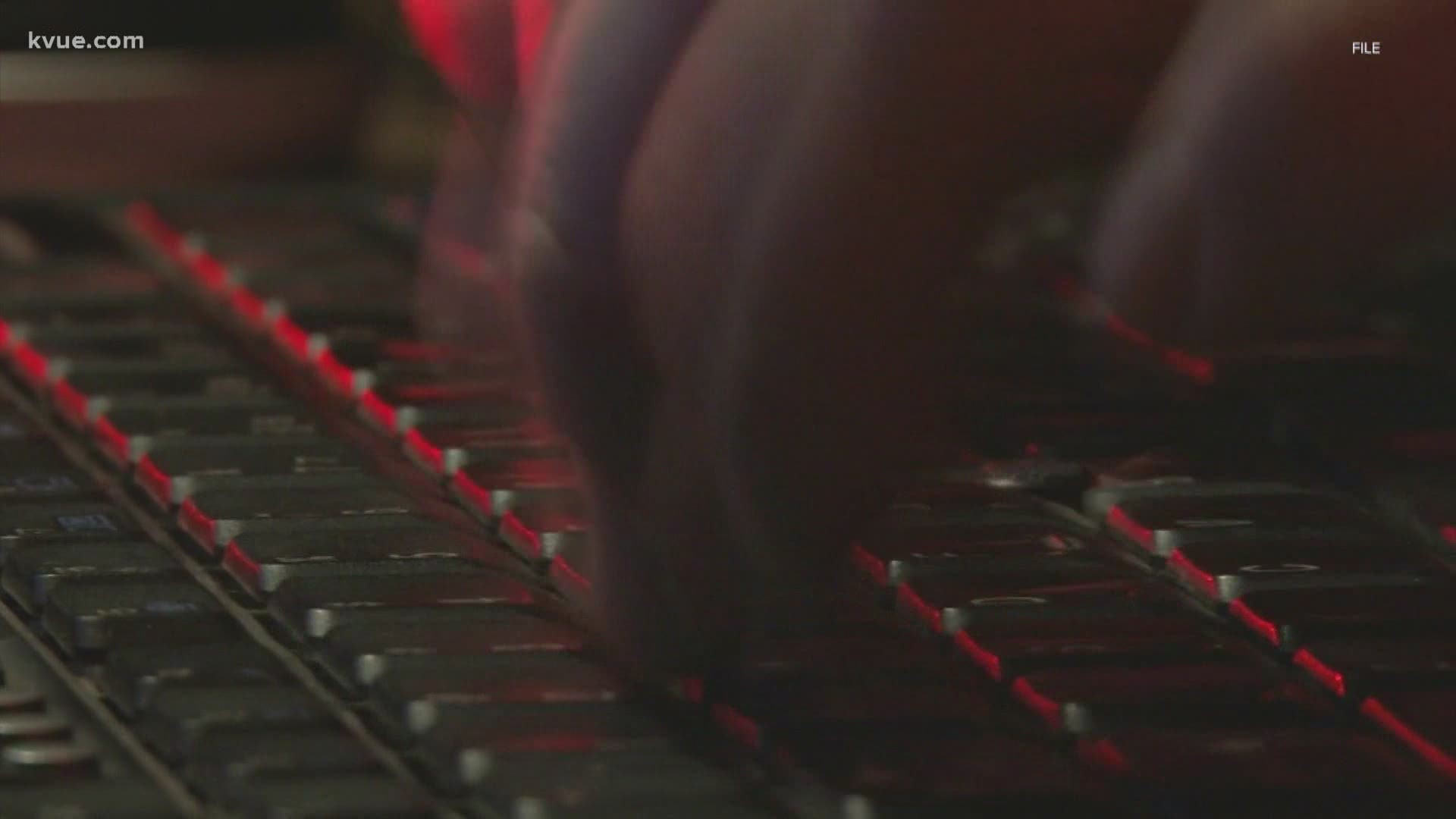AUSTIN, Texas — From a group of high-schoolers holding a peaceful chalk-art demonstration to a man who said he was taking photos of flowers outside the Austin police training facility, a new report from the Austin American-Statesman details a few of the nearly 2,000 surveillance incidents from over the last several years.
According to the report, a list was leaked by a hacker activist group last summer. It includes cases ranging from incidents like people threatening school shootings to other low-risk reports, such as people expressing their political opinions online.
It's that low-risk category that the Statesman reports has drawn privacy concerns from civil liberty activists and analysts who say this surveillance program is stepping beyond its reach.
The program, launched in 2019, is spearheaded by the Austin Regional Intelligence Center (ARIC), which gathers information on terrorism activity to be shared with the U.S. Department of Homeland Security and a group of local police agencies. It's just one of many federally-funded centers from across the country and one of eight in Texas.
As protests against police brutality gripped the nation over the summer, the Austin center was one of more than 200 law enforcement agencies that fell victim to the hacks. According to the Statesman, nearly 270 gigabytes of police data were compromised after the hackers gained access to the Houston-based web development company Netsentinal, which had contracts with many law enforcement agencies for web-hosting.
Those hackers then shared the data with a transparency collective, sort of like Wikileaks, known as Distributed Denial of Secrets. That group posted the data online using German-based servers, until The Associated Press reported they were seized by authorities in July.
The operation, dubbed "BlueLeaks," has now been called one of the largest data breaches in the history of law enforcement.
The Statesman reports that some of the stolen information includes details on the operational framework of the Austin Regional Intelligence Center's community surveillance program. Other information includes reports of incidents of anti-police rhetoric, a car driving slowly past an officer's home, a woman buying gas masks in bulk from an Austin military surplus store, and other logs of actions from everyday people.
The Statesman's report can be read in full here.
PEOPLE ARE ALSO READING:

